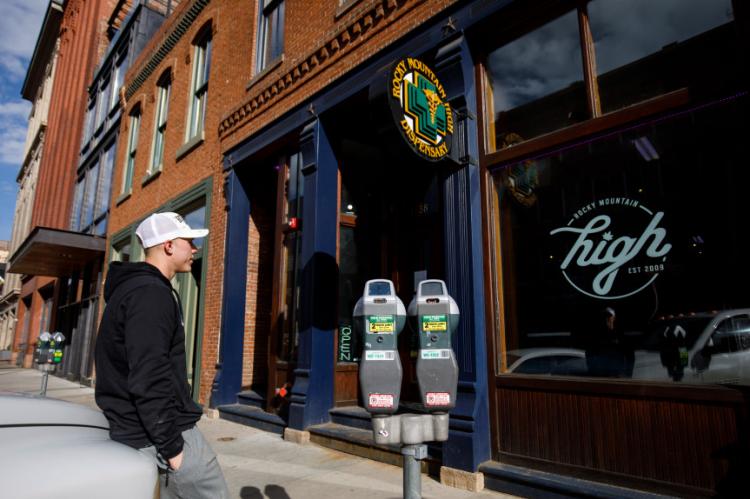Dispensaries saw the biggest sales day of the year after Denver’s initial stay-at-home order looked to close them
But the coronavirus crowds worry distributors
When Denver Mayor Michael Hancock announced recreational marijuana shops would be forced to close under the city’s stay-at-home order Monday, the response from customers was swift. They swarmed local dispensaries to stock up on products and caused enough of a stir that the mayor rescinded the moratorium just three hours later.
As more counties announce stay-at-home orders that will affect more than 2 million people in the metro area, cannabis industry personnel say it’s worth reflecting on the Denver announcement’s impact — both good and bad.
Colorado Gov. Jared Polis deemed marijuana dispensaries “critical” retail businesses, meaning they’re allowed to remain open during the coronavirus pandemic with some restrictions. If a city or county individually imposes stricter rules on how they operate, however, those will supersede state regulations.
On Monday, Denver dispensaries saw their biggest sales day of the year so far, according to data firm Flowhub. Sales were up 140% compared to an average Monday, the company reported, and 13% higher than Saturday, March 16, when Coloradans concerned about the coronavirus made a run on groceries, toilet paper and other necessities, like marijuana.
At 4 p.m., following Mayor Hancock’s news conference, sales were nearly four times higher than a typical Monday at the same time, reported Flowhub, which aggregated numbers from a sample of dispensaries’ point-of-sales system data.
St. Patrick’s Day is usually one of the largest purchasing holidays at Cannabis Station by Rocky Mountain High, said store manager Ben Prater. But since festivities were canceled this year, March 23 sits as the dispensary’s top grossing day so far.
Before the mayor’s announcement, the store had done $400 in sales, he said. By the end of the day, customers spent $15,000 on cannabis products.
“We went from zero to 60 in like 30 minutes,” Prater said. “We had a line for about five hours.”
Cannabis Station implemented safety measures, such as requiring staff to wear gloves and marking spaces six feet apart in the parking lot outside where customers should stand. State regulations currently limit recreational sales to curbside pickup only to limit the number of people in close proximity.
But the rush caused additional concerns for folks like Collen Le, logistics manager for IDY Distributors, a wholesale cannabis distribution company. IDY delivers products to about 600 Colorado dispensaries weekly, and as transactions move curbside, company drivers are increasingly visible to crowds waiting in line, Le said. Many stores don’t have docks where they accept deliveries either, so drivers often have to bring inventory through a public entrance.
“There’s always that one person who jokes around and says, ‘Bring that to my truck around back,’ ” Le said. And because cannabis is predominantly a cash business, employees often transport hundreds of thousands of dollars each day, increasing their potential risk.
Fortunately, surges like Denver witnessed are likely short-lived, said Tim Rubyal, founder of Dyspense Technologies, the software platform that manages distribution and logistics for IDY. Rubyal expects inventory orders to dip substantially as panic-buying dissipates. Prater at Cannabis Station said sales plummeted to about $1,200 total on Tuesday.
Still, employees out in the field need to be cautious about their health. Prater said employees were apprehensive about interacting with so many customers during Monday’s rush, but felt confident in the dispensary’s personal protection and sanitation guidelines.
IDY Distributors’ drivers, too, are expected to wear gloves and masks and use social distancing to the extent they can to limit the potential spread of the coronavirus, Le said.
“We deliver to so many stores a day, we don’t want to pass it along,” Le said. “I want everybody to be safe.”
- Log in to post comments

